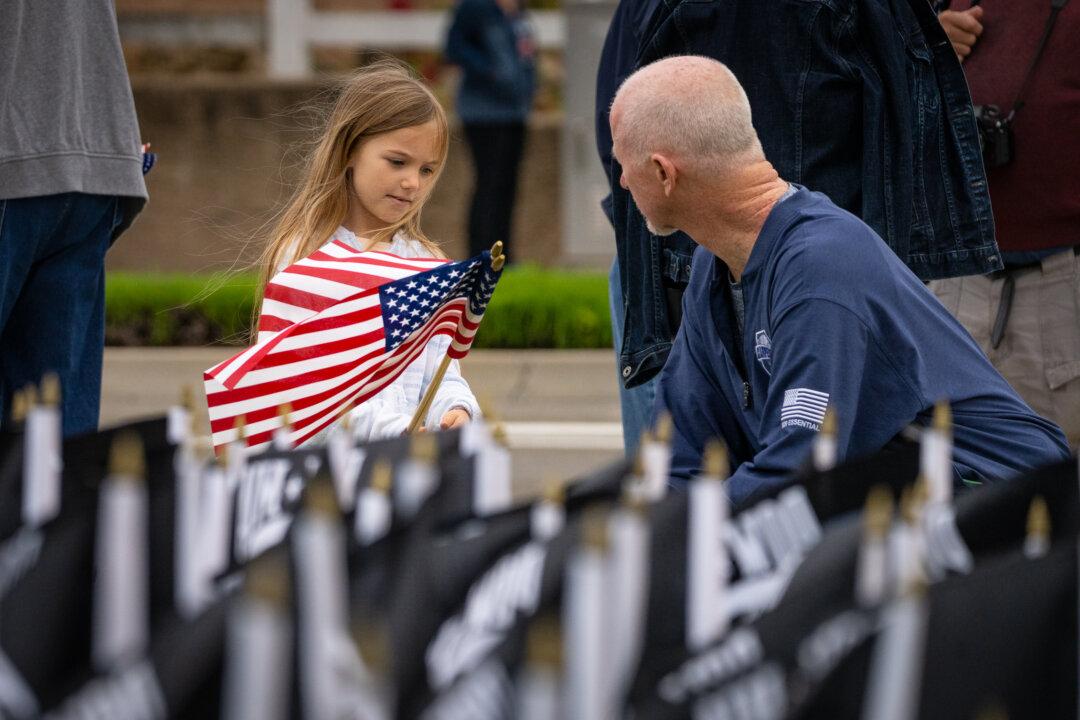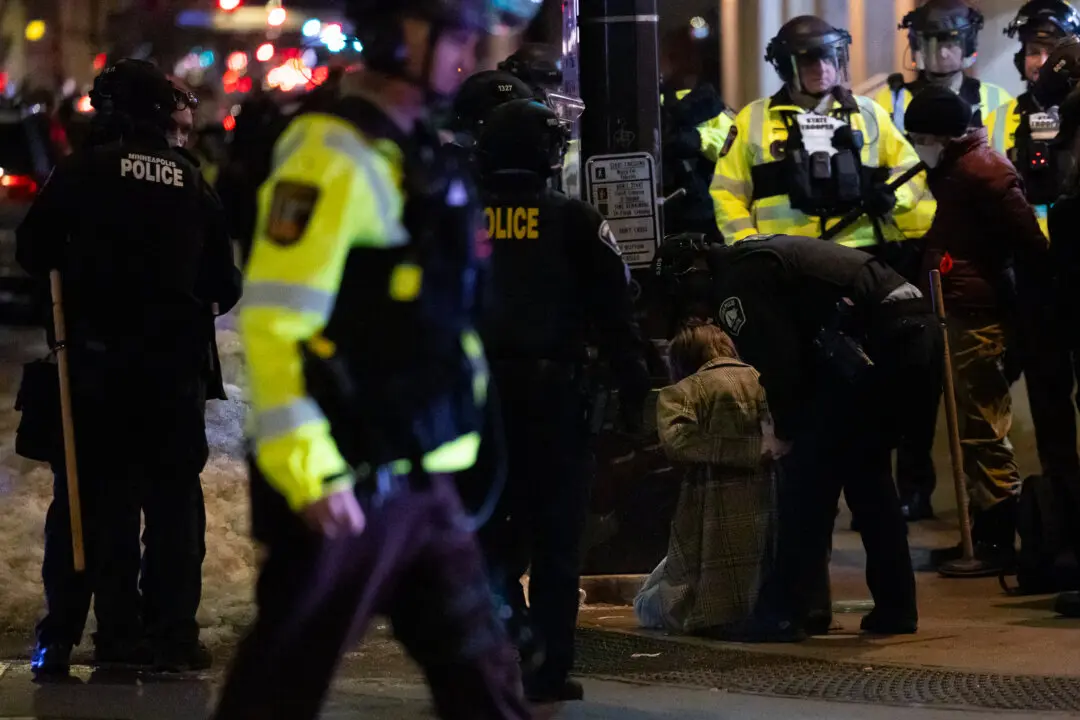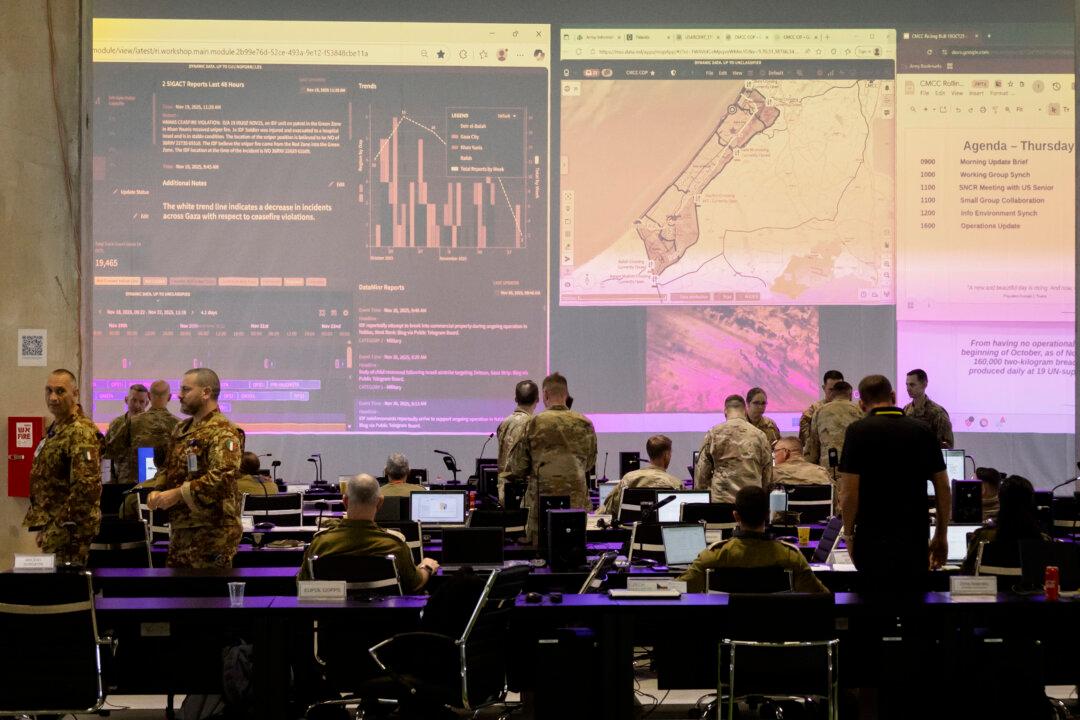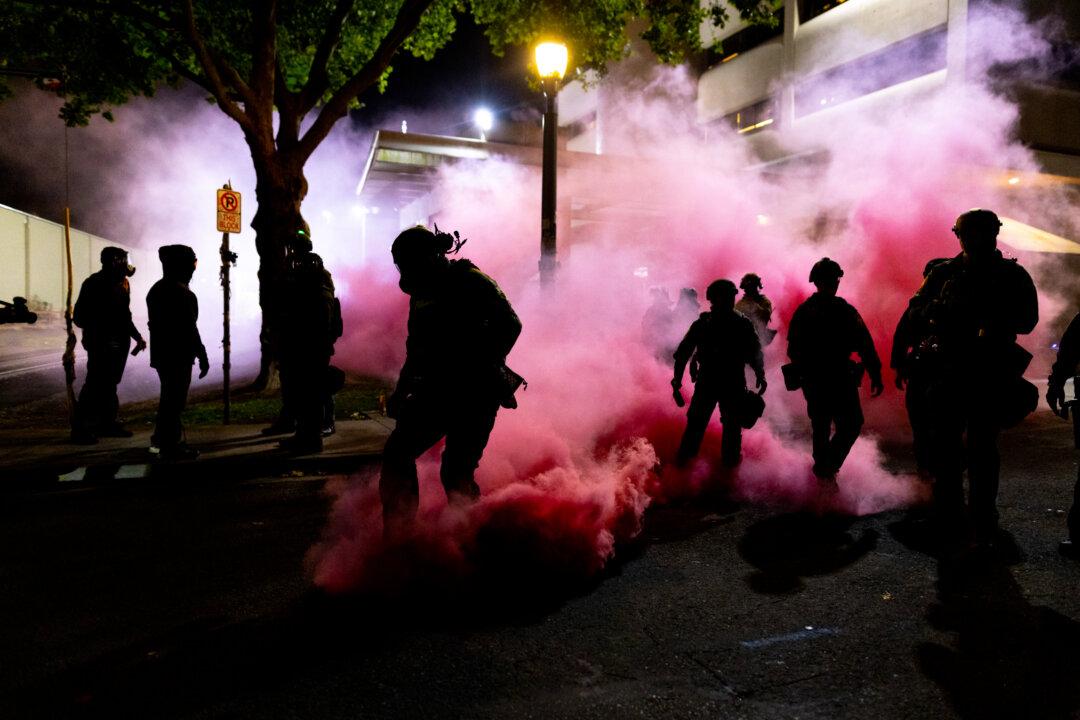YORBA LINDA, Calif.—Along several blocks of Yorba Linda Boulevard, hundreds of people gathered May 23 waving American flags as Vietnam War veterans drove past them in classic sports cars and large touring buses traveling towards the Nixon Library to celebrate its latest exhibit: “CAPTURED, Shot Down in Vietnam.”
“This event for our Vietnam vets is long overdue,” January, 74, of Santa Ana, who did not give her last name, told The Epoch Times. “We sent so many of our children off to a war that they never came back from.”




